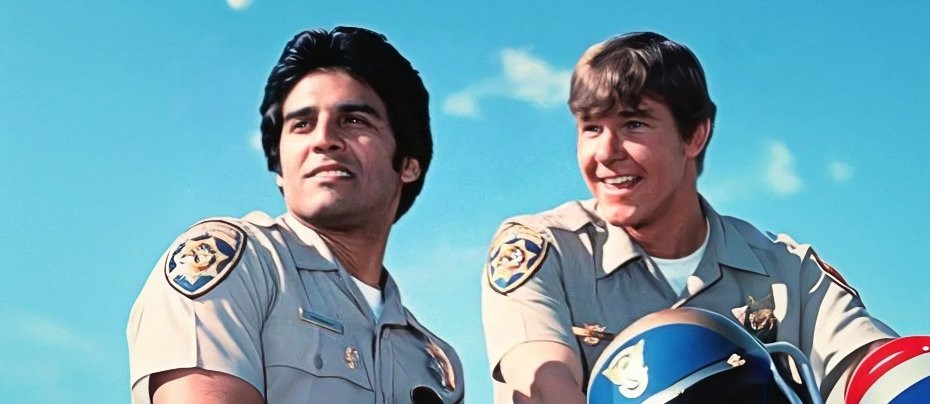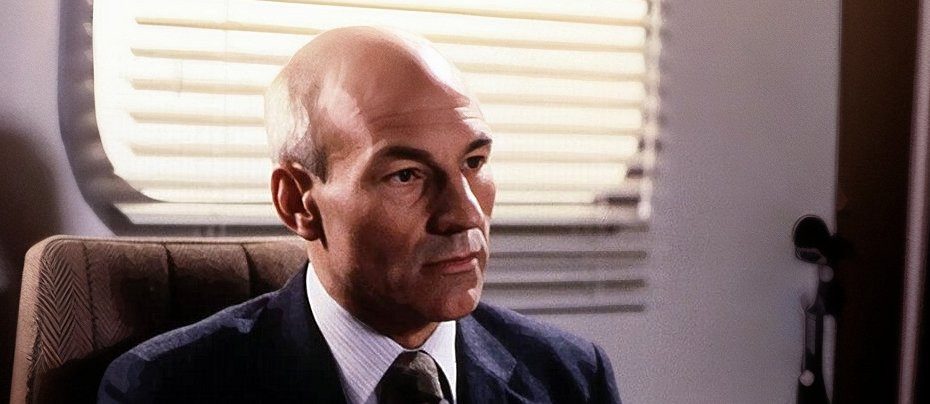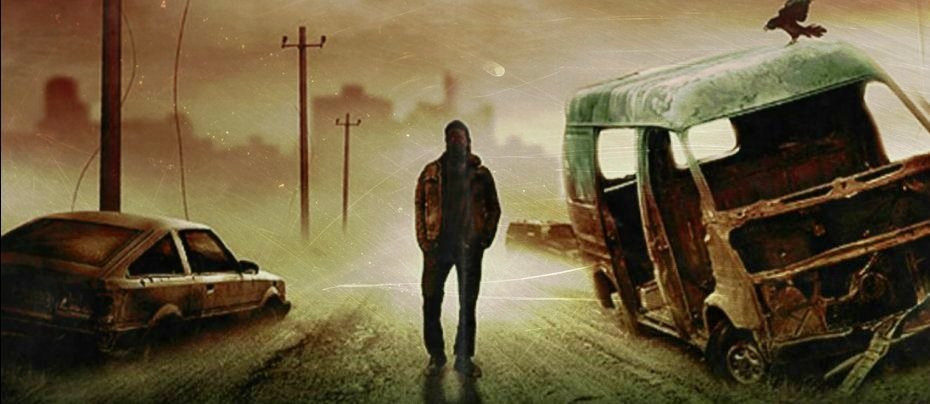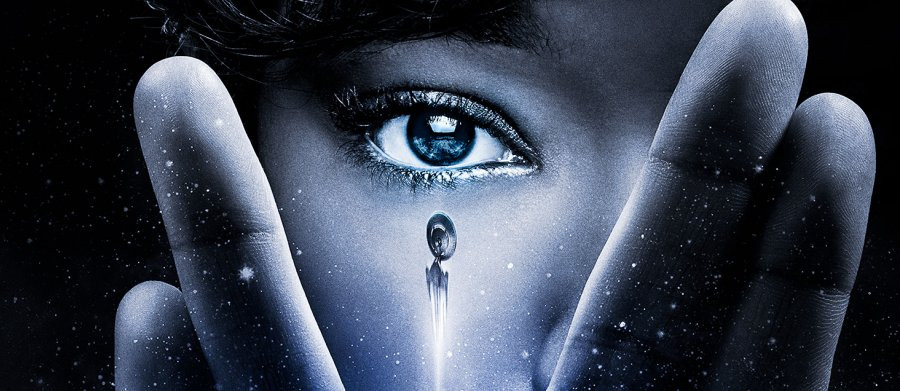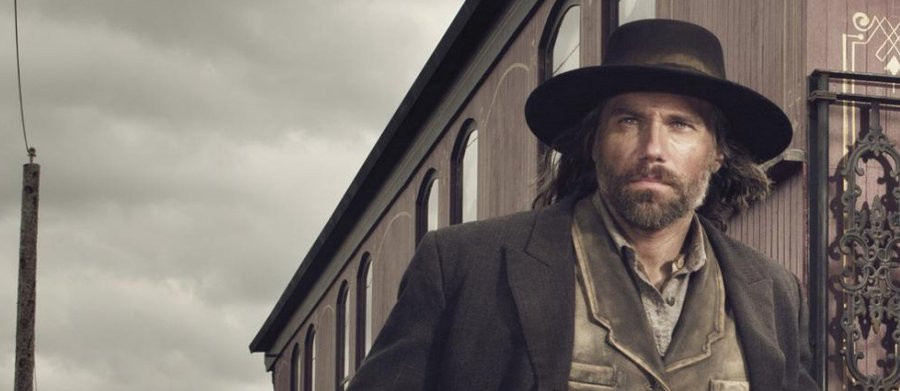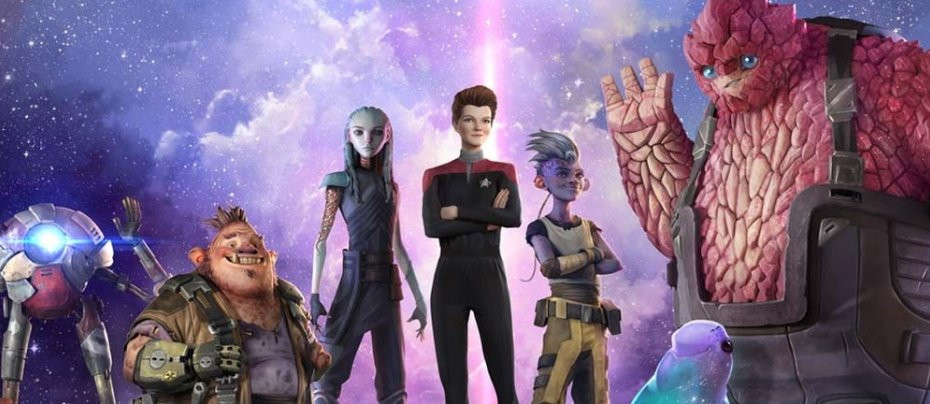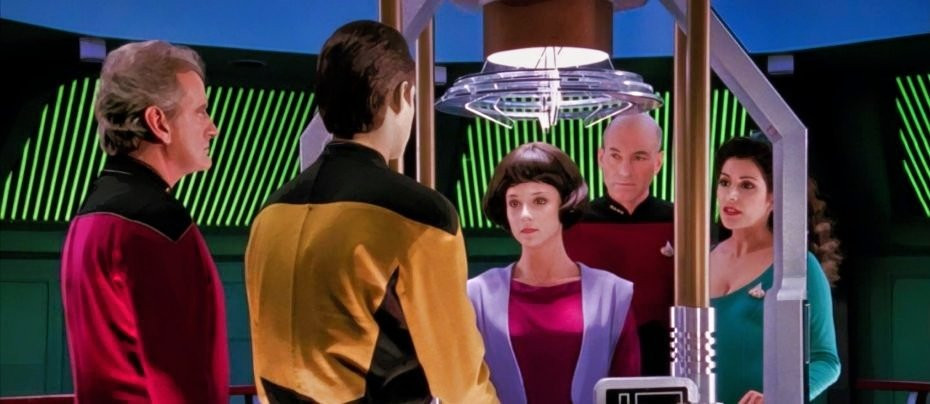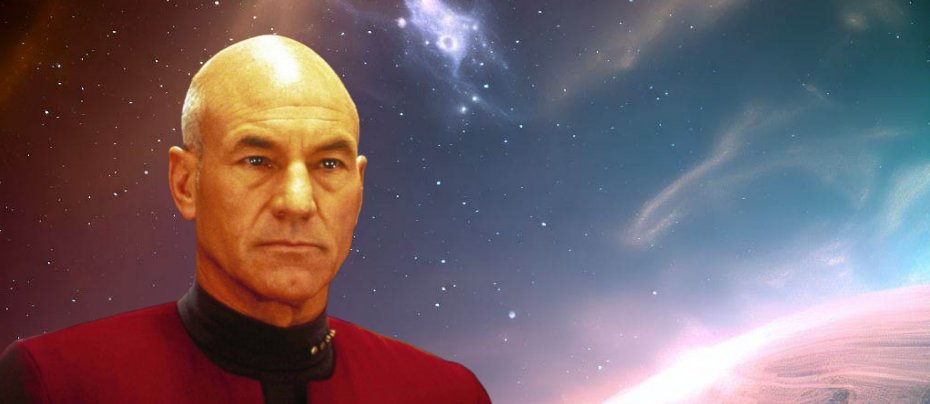
The Next Generation A Generation Later
A Personal Voyage
Rewatching a much-loved television show after many years is something of a Proustian experience. One feels one has been transported back in time. Much is immediately familiar, but perhaps not quite how one remembered it before one started rewatching.
To explain this somewhat self-indulgent journey, watching the third and final Season of Star Trek: Picard, made me quite nostalgic for Star Trek: The Next Generation, and perhaps also for the years when I first watched it. A lot of people felt the same way, as was no doubt intended. However, someone missed a trick: Amazon has the rights to Picard in the United Kingdom but not to The Next Generation, which I found on Netflix. Amazon therefore effectively invested in a prolonged advertisement for a product stocked by their rival.
As a Trekker of long standing, I had, of course, rewatched many individual episodes of The Next Generation in the intervening decades between their first showing and Picard. Some were familiar friends, but what I had never done before was rewatch all seven seasons in order from start to finish. I suspect that relatively few people have.
There is an obvious reason for that. One of the first things of which I was reminded when I started my complete rewatching was how much the way television drama is made has changed. We are now used to streaming service seasons of 10 episodes or less. Although it was shown initially in syndication, The Next Generation was made in hefty network-length seasons of 22-26 episodes each. Rewatching all seven seasons, totalling 178 episodes - counting both parts of the opening and closing two-parters as separate - is, therefore, a major logistical exercise. It took up a good chunk of my limited leisure time, the last two or three hours of several evenings a week, over a period of about two months. This was a major investment of a scarce resource, and why in general complete end-to-end rewatching of shows of over 100 episodes is rare for me and probably most other people.
Happily, the way we watch shows has changed as well as the way they are made. The first time I watched The Next Generation I had no choice but to watch it one episode a week as it was released, season by season, over the full seven years. While it was possible to video record for home use if one happened to miss an episode, videos were made available for sale only a long time after the original air dates and at prohibitive prices - in the UK, The Next Generation was released on tapes with only two episodes each at a price not much less than would later be charged for a boxset of half a season. Eventually, producers and studios realised they were leaving money on the table by pricing themselves out of a growing market, but it was only towards the end of the 1990s, several years after The Next Generation concluded, that boxsets and binge-watching became the norm. Since then, streaming services have given us an additional option, one of which I made use of on this occasion.
So the second time I watched The Next Generation in its entirety I was also watching it for the first time in a new format. This changed the way I looked at it completely. I was better able to appreciate the links between episodes, even seasons - and the inconsistencies between them, and how, weighed under by that daunting obligation to churn out 20+ episodes per season, the producers and writers themselves sometimes lost track of things.
However, the biggest change between my first complete watching and my first complete rewatching decades later was in the context. It cannot be stressed enough that all shows are a reflection of the times in which they were made - and first viewed - and the various iterations of the Star Trek Franchise are classic examples of this.
‘Watching all seven seasons over a relatively short period one becomes more aware of a definite shift in tone’
Perhaps only the late 1980s and early 90s could have produced The Next Generation. For the world in general, or at least most people in the West, it was a time of unfamiliar optimism after prolonged periods of growing pessimism and then struggle. While the Cold War was not quite over when The Next Generation first appeared on our screens in 1987, we were at the point when it looked like Drago's legs were starting to buckle under Rocky's hammer blows and collapse was only a matter of time. By the time the show wrapped seven years later, it was all over: the West had won a victory that might have seemed very surprising only a few years before, not least in that it was surprisingly bloodless, and supposedly clever people were talking about "the End of History" due to the inevitable victory of Western free market liberal democracy. Yes, people said that.

There was a definite air of triumphalism in the West and it certainly informed the writing of The Next Generation. This is one of the things that strikes one most powerfully rewatching it many years later when the general mood is again much more pessimistic. One cannot help noticing how much the Federation characters, above all Jean-Luc Picard himself, seem to enjoy boasting how perfect humanity has become. They miss no opportunity to imply their superiority over other species, and, indeed, their own ancestors - because they have to admit humanity was not always that great, but this only gives them the excuse to go on about how much better they are than previous generations.
Even at the time, it seemed a bit arrogant. One might have thought that the reflection that they are the same species as the ancestors on whom they look down might prompt a degree of humility. In retrospect that lack of humility makes them seem even more ridiculous.
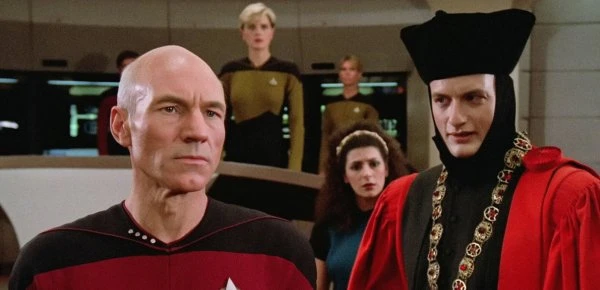
To what extent was this deliberate? After all, another thing one notices rewatching the whole thing is how often the human characters' pride in themselves is humbled by reality in various forms - perhaps by meeting genuinely superior beings or by personal failure. If this was the plan all along, then The Next Generation is even greater than we thought. However, the truth may not be that simple. Gene Roddenberry, whose philosophy is encapsulated more in The Next Generation than in any of his other work, was genuinely optimistic in his view of humanity and its future - so that it looked as if his time had come in the early 90s. Yet, even before his passing in 1991, The Next Generation was beginning to show the influence of younger and - being brutally honest - more talented writers who took a more realistic view. There was also a change in the global context as events in Somalia, Haiti, and Yugoslavia suggested that the post-Cold War world might not be so straightforward after all.
Watching all seven seasons over a relatively short period one becomes more aware of a definite shift in tone. The characters grow up a bit. Picard himself loses much of his earlier arrogance and becomes more human.
This is partly to the credit of the actors, who settled into their characters and became more open to exploring them, but mainly it is thanks to the writers exploiting a change in the format. Where the original Star Trek had consisted of freestanding episodes, basically short stories, The Next Generation began to experiment more and more with long story arcs, especially from the third season on. This was in effect applying to the traditionally episodic genre of science fiction the principles of the revolution in television scriptwriting that had begun with Hill Street Blues. What happened in one episode might have profound consequences next week - or next season. In this sense, The Next Generation is an important transitional show quite apart from its broader cultural influence.
The inconsistencies of the episodic structure still remained. The different attitudes towards the Prime Directive of noninterference in different episodes are a good illustration of this. Overall, where Captain Kirk was cheerfully flexible about it, Picard seems to treat it as a psychological substitute for religion. Sometimes he is positively callous. At one point he even reproves Will Riker for going out of his way to rescue humans. Yet on other occasions, he sets it aside on very shallow pretexts. Here too we may be seeing evidence of the growing understanding that the post-Cold War world was too complex for a binary choice between intervention and non-intervention.
Another example of inconsistency might be how the opening episode made a big deal of the new facility of separating the saucer section of the Enterprise - which was then forgotten for most of the rest of the seven seasons that followed. There were dozens of occasions where such a separation would have been the obvious first move in a difficult tactical situation, but everyone's memory functioned only intermittently on this and other points.
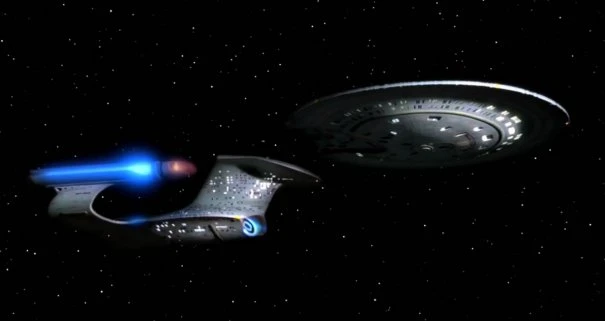
One of the reasons that the saucer section should have been separated more often was the safety of the many civilians, including women and children, aboard the Enterprise - another difference from the original that was emphasised in the first episode. This too was frequently forgotten, or remembered only intermittently, in most of the episodes that followed. Dramatic necessity demanded that the new Enterprise functioned more like a battleship than a cruise liner. Attempts to overcompensate with more "domestic" stories were, with some honourable but rare exceptions, quite excruciating.
There were also a lot of lapses of memory regarding another innovation, the "holodeck." It has rightly been compared with a home entertainment system that periodically threatens to destroy your home and everyone in it. To be honest the technology does not stand much scrutiny, and it would surely have been an elementary health and safety precaution to disconnect it the first time it malfunctioned. Of course, that would have deprived us of some of the most memorable episodes, but as a plot device, it never made much sense.
‘it took three seasons for The Next Generation to find its groove’
It is perhaps significant that The Next Generation was launched almost 20 years after the end of the original Star Trek and it is now, at the time of writing, almost 30 years since the conclusion of The Next Generation. It should therefore be no surprise that The Next Generation feels a lot more like the original Star Trek than it does like a recent science fiction show, even a recent Star Trek-like Picard.
This is certainly true of the visual style. Some of the sets, especially those representing alien planets, look as if they could have been left over from the 1960s show. Some of the locations also have a familiar air to them. Of course, these could be deliberate evocations.
Nor can it be denied that some of the freestanding plots, especially in the first two seasons, seem to be referencing episodes in the original Star Trek. Again there may be an element of tribute to this, but it also has to be noted that the original production and writing staff included more of Roddenberry's old collaborators, including the legendary Dorothy "D C" Fontana. It is by no means to their discredit to suggest that those early episodes might have been the ones they wanted to make as part of the original show had it not been cancelled prematurely. After all, the plan at one point had been to bring back the original show with its original cast.
This influence of the original Star Trek can also be seen even in some later episodes, but there was a definite changing of the guard as Roddenberry's declining health put The Next Generation, true to its name, more and more in the hands of a new generation of writers. They included a galaxy of future showrunners including Rick Berman, Michael Piller, Jeri Taylor, Ira Steven Behr (Star Trek: Deep Space Nine), Brannon Braga (Star Trek: Voyager, Flashforward, The Orville), Ronald D Moore (Battlestar Galactica), Tracy Torme (Sliders), and Rene Echevarria.
Other writers of note include fantasy novelist Peter S Beagle, author of the beloved classic The Last Unicorn, whose name is on the teleplay of one of the most highly regarded episodes, Sarek, and real-life attorney Melinda Snodgrass, who wrote the courtroom drama episode The Measure of a Man, among others.
Although he is a controversial figure in some Trek circles, credit must also be given to Maurice Hurley, who was Roddenberry's head writer and de facto second in command for the first two seasons. Without him, The Next Generation would never have got off the ground. He is also responsible for the Borg, not only the best Star Trek antagonists but arguably the best antagonists in the history of science fiction. Revisiting their introduction in the context of what had up to that point been a fairly light, positive show, one remembers how frightening they were when we, and our heroes, first encountered them, their combination of relentlessness and adaptability making resistance seem futile indeed.
That said, watching the whole thing again one sees the truth of what has since become axiomatic among fans, that it took three seasons for The Next Generation to find its groove, and the same can be said of most of the subsequent Star Trek shows. That The Next Generation was able to develop its own style is due mainly to the influence of Rick Berman, who succeeded Roddenberry as "the Great Bird of the Galaxy." If Roddenberry deserves the status of being the father of Star Trek it was Berman who, deliberately and systematically, turned it into "The Franchise."
Three years ago I wrote a review of The Next Generation which was, like many reviews for a website dedicated to television history, necessarily based at least in part on memory. Having now refreshed my memory very thoroughly, I am pleased to be able to confirm that my review holds up well. At least I do not feel I need to change a single word.
However, I do feel the need to add a number of footnotes.

First of all, I remember Patrick Stewart being good as Picard but I had forgotten just how good he was. From the very beginning, he took the role seriously and invested the character with a degree of nuance one really only appreciates when one watches how he develops over the seven seasons. That said, was Picard the character, as opposed to Stewart the actor, as great as we all thought? Unlike Kirk, he was very much the Establishment Man and remains so to the end of The Next Generation. As late as the final season, one cannot help noticing how he uses his status to control and even manipulate young subordinates, including Ro Laren and Wesley Crusher, trying, and ultimately failing, to turn them into Starfleet drones in his own image. How one feels about this depends on how one feels about Starfleet. Viewers today might be more inclined to be suspicious of the whole organisation than they were in the early Nineties.
Brent Spiner is almost as good as Stewart, not only as Data but as the many variations on the android in addition to his "father" Noonian Soong and his considerably less ethical brother Lore.
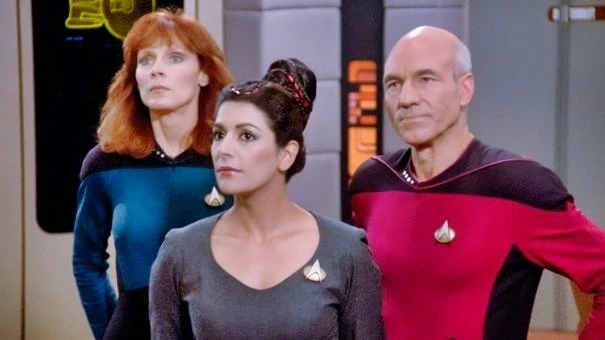
Against that, it has to be said that some of the acting by supporting players in the first season or two was... of variable quality. Perhaps the kindest way of putting it is that it took some of them a little time to find their characters. The television system, which at the time meant a new director almost every week or two, did not help: an actor might be asked to play his part one way for one episode and another way for the next. The large number of writers over those seasons made this situation worse, especially since the writers themselves did not know what to make of some of the characters, notably Will Riker (Jonathan Frakes) and Geordi La Forge (LeVar Burton), whose personalities sometimes changed by the episode. Part of the reason why things began to come together in the third season was that by then the actors had bonded as a group and began to stand up for themselves, and their characters, more. The reinstatement of Dr Crusher after Gates McFadden had been dropped for the second season was another product of the actors taking more control.
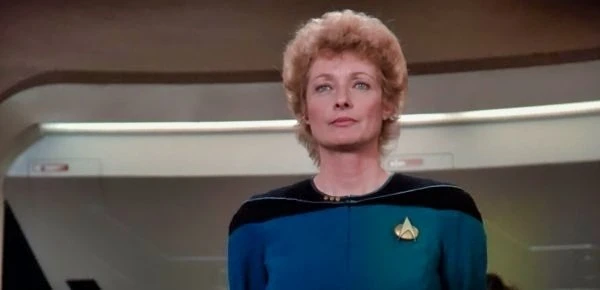
However, this brings me to a major omission in my review which I am happy to correct here. I really ought to have paid tribute to Diana Muldaur's performance as Dr Pulaski, Dr Crusher's replacement - temporary as it turned out - in Season Two. It was only when I rewatched the whole season that it struck me how great she was. It is all too easy to overlook her because she tends to be ignored by mainstream Trekkers and written out of their narrative as if she was some sort of embarrassing aberration. Fan sympathy was very much with McFadden and understandably so, and many of the episodes in that season were in any case particularly forgettable. Yet it was watching some of those minor episodes for the first time in decades that made me realise how much effort Muldaur (who had appeared in the original Star Trek episode Is There in Truth No Beauty?) and the writers had put into making Pulaski a far more interesting character than Crusher - and they succeeded. Cantankerous but caring, human and humane, Pulaski was obviously intended as a female Leonard McCoy. One can understand why, in the end, the producers, and many of the fans, felt that Crusher was a better fit with the team ethos of The Next Generation, and perhaps they were right, but one cannot help feeling that the show sometimes needed the grit in the oyster that Pulaski provided for a season.
While I remembered that there had been many outstanding guest performances in The Next Generation it is only when I began listing them for this article as I watched that I remembered just how many. Here are just a few personal favourites, with apologies to those I know I will wish I had included as soon as I send this piece off: John Anderson in The Survivors (the veteran character actor had not long before lost his wife and this may have influenced a career-best performance); Bob Gunton as a rogue Starfleet Captain who actually came across as quite reasonable; David Ogden Stiers in a typical moving performance in a chilling episode about mandatory euthanasia; Mark Lenard as the eponymous Sarek in Beagle's episode of that name; Lawrence Tierney playing to type as a criminal too clever for his own good; Jean Simmons adding real class as an Admiral; Vincent Schiavelli as a darkly comic holographic arms salesman; Elizabeth Dennehy, Brian's daughter, as Commander Shelby in The Best of Both Worlds; and, arguably the best of all, Jeremy Kemp in Family. Kemp was an old friend of Patrick Stewart, and they have real chemistry as on-screen brothers, two Yorkshiremen evidently enjoying themselves playing Frenchmen.

Ronny Cox is at the very least the runner-up among the best guest stars: his character in Chain of Command was clearly written as an antagonist, but such is the strength of his performance that there is a substantial school of thought among fans that he was in fact a good leader whose decisions were justifiable. In the same episode, David Warner shares scenes with Patrick Stewart that transcend the genre: the two classically trained actors could be on the stage of the National rather than the busy set of a machine-produced sci-fi show. A young Kirsten Dunst shows precocious talent, Billy Campbell (The Rocketeer) again makes one wonder why he is not a much bigger star, and Kelsey Grammer looks suitably confused as a Captain who turns up in the wrong Century in the briefest of cameos. Paul Sorvino is hardly obvious casting as Worf's - adoptive – brother, but nails his part as he always did. Special mention must be made of DeForest Kelley, Leonard Nimoy, and James Doohan providing some warm-hearted links to the original Star Trek. Professor Stephen Hawking is pitch perfect as, err, Professor Stephen Hawking in a scene in which John Neville is also historically credible as an irascible Sir Isaac Newton. The list could go on - and on: these are just a few names that spring to mind.
‘The general style of the show is, like the 1960s original, bright and cheerful and optimistic, in keeping with its view of the future’
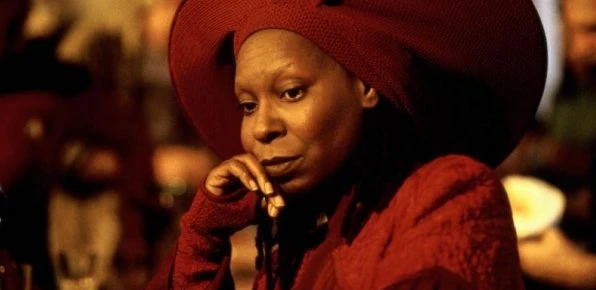
The introduction of longer story arcs, which is one of the big differences between the original Star Trek and The Next Generation, led to a greater emphasis on recurring guests, who had been a rarity in the original. The most memorable included Tony Todd as Worf's hyper-Klingon brother, Trek First Lady Majel Barrett (aka "Number One" in the pilot of the original, Nurse Chapel, the voice of the Ship's Computer, and Mrs Roddenberry in real life) as Deanna Troi's interfering mother, Michelle Forbes as the spiky Ro Laren, Dwight Schulz (The A-Team) as the sympathetic but socially inadequate Lieutenant Barclay, and Whoopi Goldberg as Guinan. It has to be said that, while one can understand why the producers jumped at the chance to involve Goldberg, Guinan does unbalance things a little: she adds value to every scene in which she appears, which only serves to make one wonder why she did not appear more often - knowing there is this incredibly knowledgeable and mysterious alien somewhere aboard the Enterprise, begs the question why Picard was not consulting her all the time.
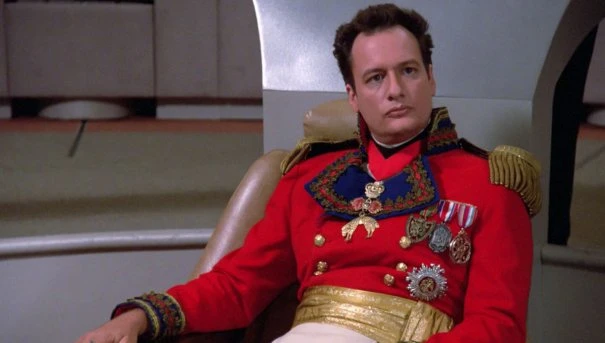
John de Lancie's Q was given a definite character arc of his own over seven seasons, being gradually revealed as a more vulnerable, even childish, entity than he first appeared. He is such good fun that it seems almost ungrateful to complain that perhaps he erred too much in the direction of comedy relief as the show went on and was at his most effective when he retained something of a dangerous edge.
It was a pity that the show did not make more of Vash, played with charm by Jennifer Hetrick. That she was in many ways the anti-Picard made her the most challenging and interesting of Picard's potential love interests, and perhaps the most credible, because such a man would be satisfied only by a woman with a strength of personality equal to his own. His dalliances with subordinate officers seemed unworthy of him at the time and have not aged well following "Me Too."
Denise Crosby is in a category of her own as a regular cast member who returned in recurring parts. There is a strong case for saying that, in spite of the character's absurd backstory, the Romulan Commander Sela was her best role. It certainly gives her one of the most amusing lines in the history of Trek, which she delivers perfectly.
Overall the effects have aged surprisingly well once one accepts that they are the product of a previous generation. Some of the CGI is obviously very dated but much of it holds up better than one might expect, and, in any case, the greater reliance on models in those days means that the look of the show never depended on computers as much as equivalent shows today. Indeed the show's use of light and colour could teach most recent shows a thing or two.
The general style of the show is, like the 1960s original, bright and cheerful and optimistic, in keeping with its view of the future. The look of the thing is credible, not least in its notions of technology. Just as the original Star Trek popularised the concept of the mobile telephone, The Next Generation gave us prototypes of the laptop computer, the electronic tablet, and the touch screen at a time when the real things were only at the early stages of development. Michael Okuda and his design team put graphics on those screens that still look believable three decades later.
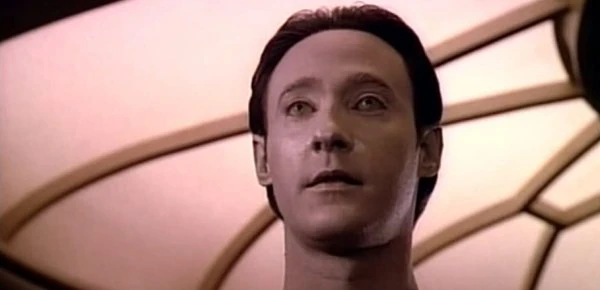
Only in its underestimation of the growth in computer power has the show been completely overtaken by events. Data's programming now seems crude compared with that of a modern artificial intelligence (AI), but part of the appeal of the character was always that he was not that good at "learning."
So we come to the Big Question: is the show better or worse than I remembered?
Yes. In many respects it is even better than I remembered. In some respects, it is not so good. This may be more to do with the nature of human memory than with the show. It is the outstanding, both good and bad, that sticks in the mind. So it should not have surprised me that I remembered the great episodes remarkably well. I also remembered the real stinkers. What I had forgotten was how many mediocre episodes there were in between. I usually had vague recollections of them once I started watching but could not recall much of the detail even then and I had forgotten their very existence before that.
Personally, I could have done with a lot fewer episodes about Riker's loveless love life and Worf's difficulties as a single parent. There really was far more padding than I remembered. There is no denying that the trend towards tight seasons of ten episodes or less is one of the greatest achievements of the 21st Century in terms of social progress.
This begs another question: will this experience encourage me to rewatch any other shows of over 100 episodes end to end?
Not immediately, but I can certainly see myself rewatching the complete Deep Space Nine at some point if I am spared. I am not so certain I could immerse myself so completely in Voyager or Enterprise, but perhaps I might get into them more once I started watching them intensively. More interesting is the prospect of watching all the episodes of the original Star Trek, a mere 79 of them, in their proper order - not something I have ever done: although I have seen them all, most of them several times, like most of my generation I watched when I happened to see they were on with no reference to seasons or order. The fact that all the stories were freestanding made this very easy to do and was perhaps a contributory factor in the show's success as repeat fodder.
Outside the Star Trek universe, there are a number of long-running shows I can see myself rewatching in their entirety if I make it to old age, including the Battlestar Galactica reboot, Person of Interest, Chuck, The Sopranos, The Wire, Andromeda, The Shield, Due South, Hell on Wheels, The Last Kingdom, Warehouse 13, and, if enough time has passed for me to forgive the rushed conclusion, Game of Thrones. Over the last couple of decades, I have already rewatched the complete Babylon 5, Buffy the Vampire Slayer, and Angel, and they might well stand another rewatching in the future. Others I have rewatched may not stand the test of time: I shall remember them happily as phases of my life but have no great desire to return there. There is another category of shows, including Breaking Bad and Better Call Saul which I think will age well, despite which I have no desire to sit through them again because I know how they turned out.
At least I enjoyed rewatching The Next Generation and I can say that the rewatching was a worthwhile exercise. Of how many shows might you say the same?
Published on July 27th, 2023. Written by John Winterson Richards for Television Heaven.


